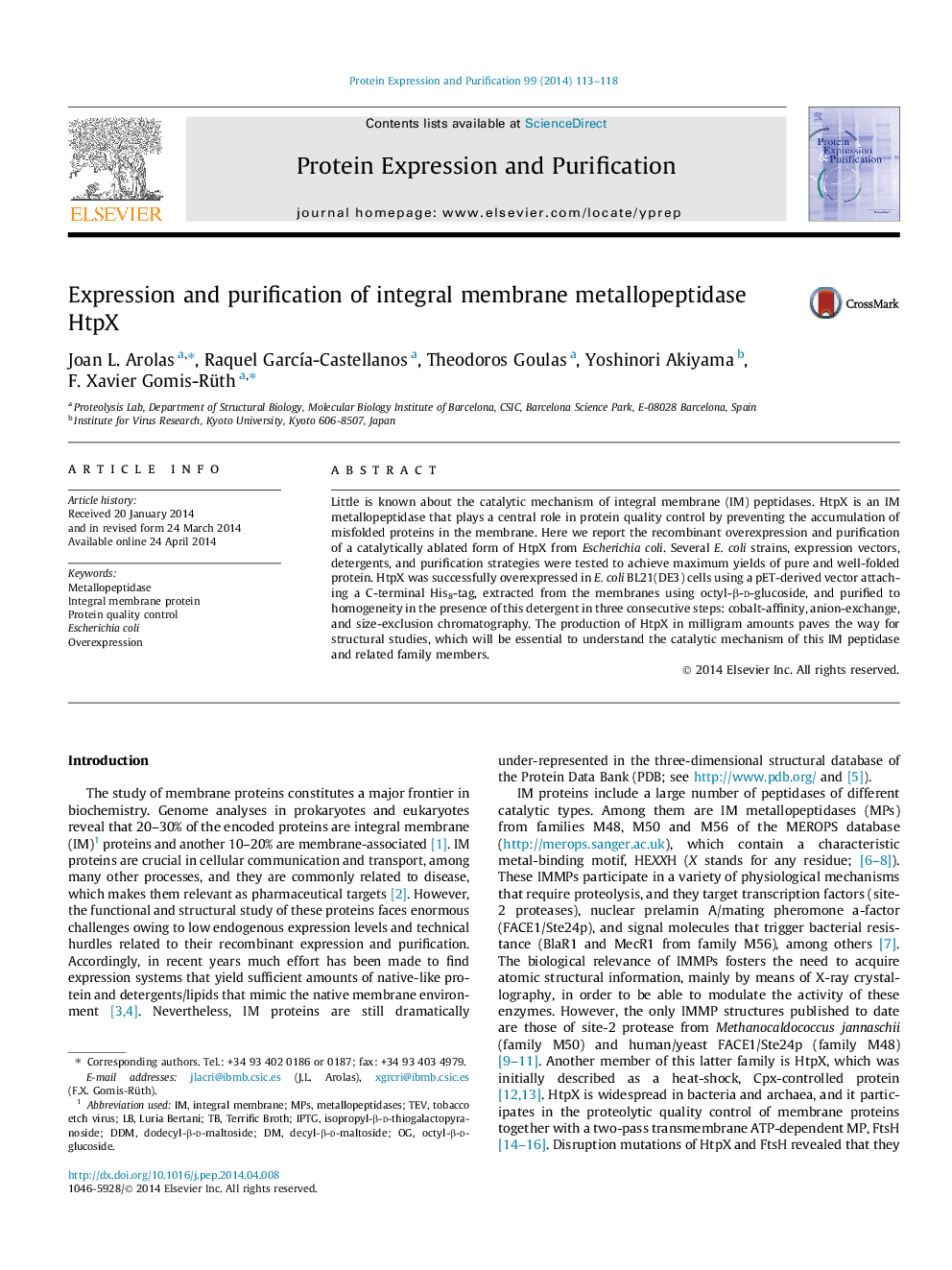| Article ID | Journal | Published Year | Pages | File Type |
|---|---|---|---|---|
| 2020463 | Protein Expression and Purification | 2014 | 6 Pages |
•The integral membrane metallopeptidase HtpX was overexpressed in E. coli.•A catalytically ablated HtpX mutant was designed to avoid self-cleavage.•The protein was extracted from membranes and purified in octyl-β-d-glucoside.•The protein was purified by cobalt-affinity, anion-exchange and size-exclusion.•The overall system renders milligram amounts of HtpX and fosters structural studies.
Little is known about the catalytic mechanism of integral membrane (IM) peptidases. HtpX is an IM metallopeptidase that plays a central role in protein quality control by preventing the accumulation of misfolded proteins in the membrane. Here we report the recombinant overexpression and purification of a catalytically ablated form of HtpX from Escherichia coli. Several E. coli strains, expression vectors, detergents, and purification strategies were tested to achieve maximum yields of pure and well-folded protein. HtpX was successfully overexpressed in E. coli BL21(DE3) cells using a pET-derived vector attaching a C-terminal His8-tag, extracted from the membranes using octyl-β-d-glucoside, and purified to homogeneity in the presence of this detergent in three consecutive steps: cobalt-affinity, anion-exchange, and size-exclusion chromatography. The production of HtpX in milligram amounts paves the way for structural studies, which will be essential to understand the catalytic mechanism of this IM peptidase and related family members.
